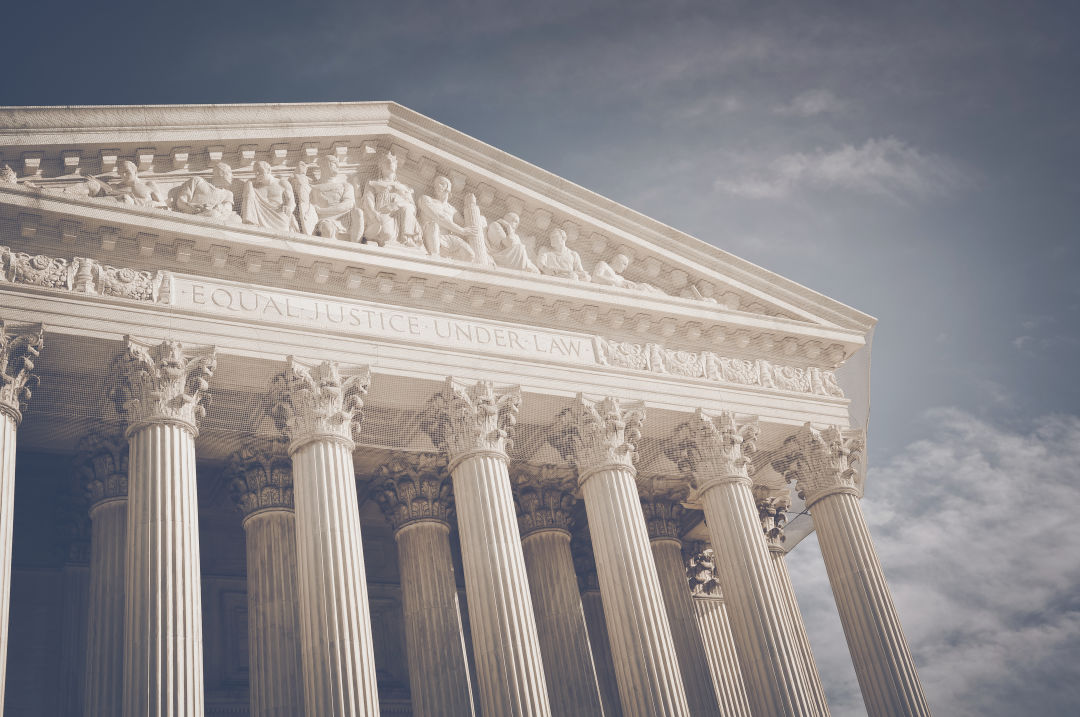After 86 Years, Oregon's Non-Unanimous Jury Convictions Rule Struck Down by the US Supreme Court

In 48 other states, Monday’s decision from the U.S. Supreme Court stating that criminal cases can no longer be decided by non-unanimous juries might not garner much attention, particularly when the dismal headlines about coronavirus are still coming thick and fast, with no sign of letting up.
In Oregon, though, the 6-3 decision from the nation’s highest court is a certified Big Deal, because, for 86 years and counting, we’ve been one of only two states in the country where you could be convicted of any crime other than murder even though one or two jurors believed you were innocent, or at least, that there was reasonable doubt.
The other state is Louisiana—and they changed their law in 2018.
After Monday’s decision, which split the court from its usual conservative/liberal fault lines, the law in Oregon will change too.
“It’s your constitutional right, as a defendant, that you are now entitled to a unanimous verdict conviction,” says Aliza Kaplan, a law professor at Lewis and Clark University who directs the school's Criminal Justice Reform Clinic, and says she and other activists have been waiting for this decision for a quarter of a century.
Allowing non-unanimous jury verdicts is another relic of Oregon’s brazenly racist past, she says, like the property exclusion laws that barred nonwhites (called out as “free negroes and mulattos” in the state constitution of 1857) from owning land in the state until 1922. In this case, the law went into effect in Oregon to blunt the influence of racial, ethnic, and religious minority jury members, as the state slowly diversified in the 1930s.
Writing for the majority, Justice Neil Gorsuch delved into the historical background of Oregon’s law, which is, Kaplan says, “important to put this case into context. It’s another of these historical Oregon discriminatory stories. I don’t know about everyone else, but I’m sick of all of that. I want to get rid of them.”
(Dissenting judges included Samuel Alito and John Roberts, both appointed by Republican presidents and, interestingly, Justice Elena Kagan, appointed by President Obama. Kaplan suggested that Kagan’s vote may have been due to her unwillingness to overturn precedent, given a prior 1972 case, Apodaca v. Oregon, that allowed non-unanimous jury verdicts to stand. “She could be playing a long game,” Kaplan says of Kagan, protecting precedent-setting cases like Roe V. Wade, for example.)
High court justices didn’t say much about what to do about those incarcerated in Oregon prisons who were convicted by 11-1 or 10-2 verdicts, which Kaplan estimates as a “few hundred cases.” This past fall, when the case was being heard in Washington, Oregon Attorney General Ellen Rosenblum had suggested that changing the system would cause a backlog of cases in an already overburdened court system (which has slowed down further due to the physical distancing requirements of the COVID-19 quarantine).
But in a press release sent out on Monday, Rosenblum called the decision, “good news” for the state and said “we can now move forward to remove the law from our state constitution (which does not occur automatically) and address the many cases that require review as a result of today’s decision...We will also need to be in contact with the many crime victims and their families who are impacted by this decision.”
Kaplan says she and her colleagues and students at the Criminal Justice Reform Clinic are prepared to help. Before coronavirus, in anticipation of the decision, they had planned a road trip to prisons around the state, to educate inmates on their rights under the new law. Now they are figuring out how to get the information out via video presentation, creating petition templates and offering trainings for defense attorneys, she says, while hoping that by summer, distancing rules will have eased enough to allow for in-person presentations.
“I do have some concerns that those who are incarcerated aren’t going to get the information and assistance they need to file their claims,” Kaplan says. “When there is no access, it creates questions. I work with these amazing students. We are an army, and we are ready to road trip around the state. I hope we get the opportunity to do that soon.”




